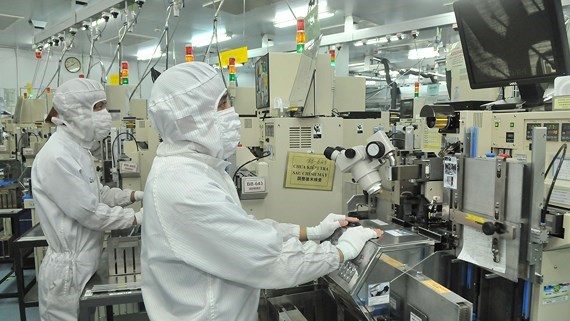
Japanese enterprises are expanding investment in sectors that are seen to have growth potential in Vietnam, according to experts.
 |
| A factory owned by a Japanese company MTEX Vietnam in HCM City. Japanese firms are expanding investment in various sectors in Vietnam. |
Japanese enterprises are expanding investment in sectors that are seen to have growth potential in Vietnam, according to experts.
Japanese company Nikkiso Vietnam MFG Co.,Ltd. last month decided to pour an additional 3 million USD into its medical equipment factory at the Tan Thuan Export Processing Zone in Ho Chi Minh City.
The company said the money would be used to install more machinery and equipment to increase the production of blood tubing lines used for haemodialysis to 24 million a year.
Nikkiso Co., Ltd, the parent company, also has a factory to produce the lines in Thailand, but it decided to increase production in HCM City.
Many Japanese supporting-industry projects have been licensed this year in many localities in the south, including large ones such as Furukawa Automative Systems in Vinh Long (48.8 million USD) to produce electric wires for cars.
In Dong Nai province, SMC Manufacturing (Vietnam) Co., Ltd. at the Long Duc Industrial Park, which produces automatic devices for offices, factories and warehouses, has increased its investment by 70 million USD.
Lixil Global Manufacturing Vietnam Co., Ltd has registered to increase its capital by 25 million USD, making it the largest Japanese company in the province.
Masahiko Makata, CEO of Long Duc Investment Co., Ltd., which builds the seven-year-old park’s infrastructure, said almost all the space has been leased out.
Many Japanese companies want to continue investing and the company seeks to expand the park in the second phase.
According to the Japan External Trade Organization (JETRO), of 30 companies selected by Japan’s Ministry of Economy, Trade and Industry from 124 applicants to receive support to expand in Southeast Asia, 15 chose Vietnam to invest and expand production.
This was a testimony to Vietnam’s attractiveness, said Takeo Nakajima, Chief Representative of JETRO in Hanoi. In the long term, they also aim to take advantage of the opportunities arising from the country’s free trade agreements.
Takeo said the process of diversifying value chains by the Japanese enterprises began a while ago, and the COVID-19 pandemic requires firms to diversify production to two to three destinations to avoid supply chain disruptions though production costs might rise as a result.
Japanese firms established supply chains in China and the Republic of Korea, and expanded in recent years to Southeast Asia, which is an important investment destination, he said.
The Japanese Government has earmarked 70 billion yen (653 million USD) to support firms that diversify their supply chain out of China.
Experts said this would help boost investment by Japanese firms in Vietnam.
Japanese investments are expected to flow into sectors like medical equipment, agricultural and food processing, agriculture, education, and manufacturing, they said.
(Source: VNA)



